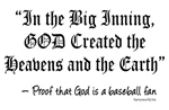Murphy started his career as a catcher in the late 1970s with the Atlanta Braves. His career took off in 1980 when he was moved to the outfield full time. He hit .281 with 33 HR and 89 RBI. Though he had showed HR power before, he had struggled as a hitter for his first two seasons. After the strike shortened season of 1981, he became a star, winning the NL MVP in 1982 (.281, 36, 109) and 1983. (.302, 36, 121) He was a sort of ironman, playing every game from 1982 through 1986. He led the NL in HR in 1984 and 1985, then set a career high with his 44 HR in 1987. Similar to a Don Mattingly, he just didn't maintain being the best of the game for long enough and was out of the game by 1993 at age 36.
Walker started his career in 1990 with the Montreal Expos. He was part of a young team that by the 1994 season, was on the rise. He had a breakout season in 1993 hitting .301 with 23 HR and 93 RBI. Walker would have been a prime NL MVP candidate in the 1994 season, had it not been shortened by the players' strike. He hit .322 with 19 HR and 86 RBI with a league leading 44 doubles. Unfortunately, for the Expos, they had to break up the team after the 1994 season which was headed by Walker leaving as a free agent to go to the Colorado Rockies. After a couple of decent years, he really took off starting in 1997, when he hit .366, 49, 130 winning the NL MVP. 1998 saw him hit .366, 23, 67, while equaling his 1997 total with 46 doubles. He hit .379 the next year with 37, 115 leading the league in BA, OBP and SLG. He was injured in 2000, but came back in 2001 to hit .350, 38, 123 and .338, 26, 104 in 2002.
Two things hurt Walker in HOF consideration. His batting average rose dramatically during his prime years in Colorado and the mile high altitude in one of the better hitting parks in the history of the game. The wide gaps led to all the 2Bs that players like Walker and Todd Helton took advantage of. He also played in the heat of the steroid era. Even if he didn't do steroids. his numbers look average because of what the other players were producing at that time. Hitting .363, .379, .350 in three out of four years and not getting any MVP consideration is a testament to the numbers that were being produced at that time.
Now lets compare the career stats of the two. Murphy played in more games 2180-1988. Walker scored slightly more runs (1355-1197) and had hits. (2160-2111) Walker was more of a gap hitter and it was evident in his 2B totals, which bested Murphy 471-350. Murphy had more career HR (398-383) while Walker had more RBIs. (1311-1266) Walker wins the numbers battle with a better career average (.313-.265) and OPS. (.965-.815) But I can't stress anymore how Walker saw his batting numbers spike when he started playing his home games at Coors Field. And Murphy, without a doubt, was the best player in the league at the time while Walker was never considered so.

 RSS Feed
RSS Feed
